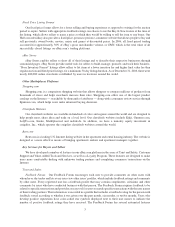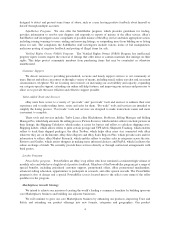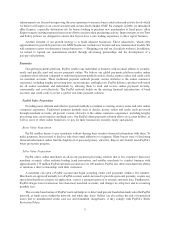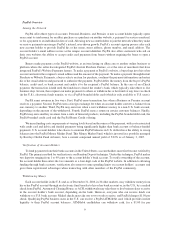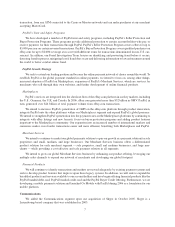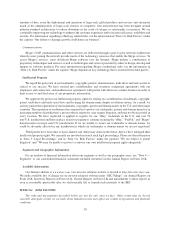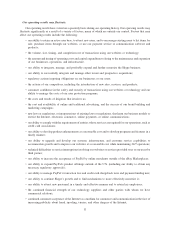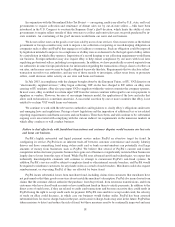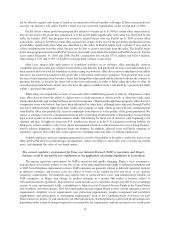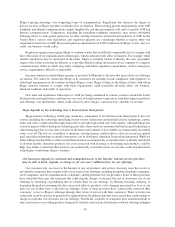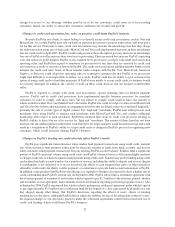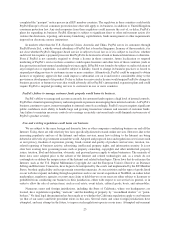eBay 2006 Annual Report Download - page 17
Download and view the complete annual report
Please find page 17 of the 2006 eBay annual report below. You can navigate through the pages in the report by either clicking on the pages listed below, or by using the keyword search tool below to find specific information within the annual report.conform to local cultures, standards, and policies. The commercial, Internet, and transportation infrastructure in
lesser-developed countries may make it difficult for us to replicate our business model. In many countries, we
compete with local companies that understand the local market better than we do, and we may not benefit from
first-to-market advantages. We may not be successful in expanding into particular international markets or in
generating revenues from foreign operations. For example, in 2002 we withdrew our eBay marketplace offering
from the Japanese market, and in late 2006 we announced a change to our strategy in China by entering into a joint
venture with a local Chinese company. Even if we are successful in developing new markets, we expect the costs of
operating new sites to exceed our net revenues for at least 12 months in most countries. As we continue to expand
internationally, including through the expansion of PayPal, Skype, Shopping.com, and Kijiji, we are subject to risks
of doing business internationally, including the following:
• regulatory requirements, including regulation of Internet services, communications, auctioneering, profes-
sional selling, distance selling, banking, and money transmitting, that may limit or prevent the offering of our
services in some jurisdictions, prevent enforceable agreements between sellers and buyers, prohibit the
listing of certain categories of goods, require product changes, require special licensure, subject us to special
taxes, or limit the transfer of information between eBay and our affiliates;
• legal uncertainty regarding our liability for the listings and other content provided by our users, including
uncertainty as a result of legal systems that are less developed with respect to the Internet, unique local laws,
and lack of clear precedent or applicable law;
• difficulties in integrating with local payment providers, including banks, credit and debit card associations,
and electronic fund transfer systems or with the local telecommunications infrastructure;
• differing levels of retail distribution, shipping, communications, and Internet infrastructures;
• different employee/employer relationships and the existence of workers’ councils and labor unions;
• difficulties in staffing and managing foreign operations;
• challenges associated with joint venture relationships, including dependence on our joint venture partners;
• difficulties in implementing and maintaining adequate internal controls;
• longer payment cycles, different accounting practices, and greater problems in collecting accounts
receivable;
• potentially adverse tax consequences, including local taxation of our fees or of transactions on our websites;
• higher telecommunications and Internet service provider costs;
• strong local competitors;
• different and more stringent user protection, data protection, and other laws;
• cultural ambivalence towards, or non-acceptance of, online trading;
• seasonal reductions in business activity;
• expenses associated with localizing our products, including offering customers the ability to transact
business in the local currency;
• laws and business practices that favor local competitors or prohibit foreign ownership of certain businesses;
• profit repatriation restrictions, foreign currency exchange restrictions, and exchange rate fluctuations;
• volatility in a specific country’s or region’s political or economic conditions; and
• differing intellectual property laws.
Some of these factors may cause our international costs of doing business to exceed our comparable domestic
costs. As we expand our international operations and have additional portions of our international revenues
denominated in foreign currencies, we also could become subject to increased difficulties in collecting accounts
13


